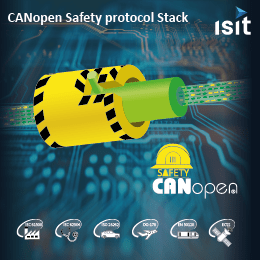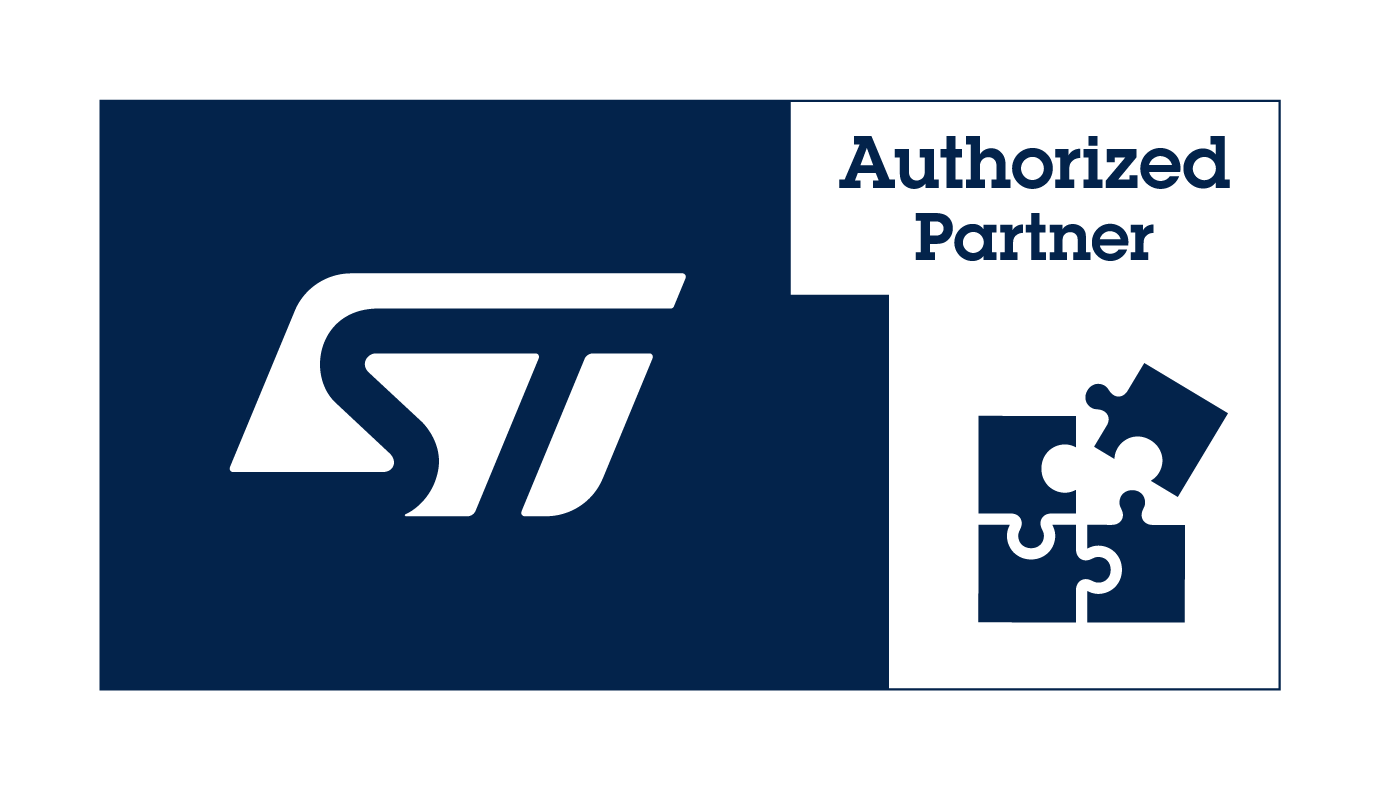ISIT CANopen Safety Stack

ISIT’s CANopen Safety stack adds Safety Extensions compliant to CiA 304 (EN50325-4) to meet the Safety requirements of CANopen applications.
ISIT also offers 2 others versions of its CANopen stack:
CANopen Safety
CANopen Safety is an extension of the widely proven CANopen standard protocol (EN50325-4). CANopen security has been specified by the CAN in Automation association (CiA) under the name of DS304 and transferred to standard EN50325-5. It therefore provides the user with a standardized protocol which allows him to transfer information or proces data in complete functional safety.
This is done using SRDO (Safety Relevant Data Objects). Thanks to the definition of SRDOs, it is possible to transmit secure and unsafe information via the same CAN medium. Therefore, safety functions can be integrated into existing systems.
This is done using SRDO (Safety Relevant Data Objects). Thanks to the definition of SRDOs, it is possible to transmit secure and unsafe information via the same CAN medium. Therefore, safety functions can be integrated into existing systems.
ISIT CANopen Safety protocol Stack
ISIT offers a software CANopen protocol stack (ISIT_COSAFE) compliant with the CiA-301 and CiA-304 standard.
Developed in ANSI-C and independent of the hardware (except for CAN driver), it eases the rapid development of master and slave devices, including the necessary services like SDO, PDO, NMT (network management), LSS (layer setting services) and Safety communication messages (SRDO).
The Safety extension CiA-304 provides all the services and functionalities for designing CANopen devices with safety communication constraints and has already proven itself in many industrial applications.
Developed in ANSI-C and independent of the hardware (except for CAN driver), it eases the rapid development of master and slave devices, including the necessary services like SDO, PDO, NMT (network management), LSS (layer setting services) and Safety communication messages (SRDO).
The Safety extension CiA-304 provides all the services and functionalities for designing CANopen devices with safety communication constraints and has already proven itself in many industrial applications.
SRDOs allow reliable transmission of process data, as opposed to PDOs which cannot guarantee a sufficient level of confidence. To meet safety requirements, SRDOs have special features and transmission behavior. A SRDO consists of two CAN (redundancy) messages, which are transmitted cyclically, with inverted data content, a different CAN identifier, and strict transmission timing. On the consumer side, the SRDOs are monitored and controlled with regard to their transmission time, sequence order and data consistency.
The SRDO add-on module therefore includes a special extension module for monitoring CANopen device messages (which is part of the CANopen configuration suite) and their transmission, as well as an adapted CAN driver, all linked to an interface for configuration. consistent events and data objects relevant to the security of a CANopen device.
In some application cases, the use of the Safety extension is not sufficient, especially if the final application must receive certification for an official safety standard (eg IEC61508, ISO13849, ISO25119 or DO178).
ISIT therefore offers a certified version of its CANopen Safety Stack
ISIT CANopen Safety protocol Stack - Functions overview
- SDO expedited, segmented and block modes
- PDO synchronous/asynchronous modes
- PDO static/dynamic mapping
- NMT Error control : Heartbeat consumer/producer
- EMCY producer (Consumer in Master version only)
- NMT commands (Master version only)
- Any slave profile can be created by providing EDS file
- SRDO producer / consumer – Static Mapping
- EDS Editor provided
Services
Upon request, ISIT can adapt the stack onto a specific system and perform the necessary test sets to approach the certification process with confidence.
ISIT CANopen Safety protocol Stack - Content of the delivery
- CANopen Safety stack : Software provided as source code for the stack and the CAN driver
- Usage documentation (User manual)
- Sample application programs for the stack implementation
- Support and maintenance included for the first year
ISIT CANopen Safety protocol Stack - Additional services
- Trainings on CAN/CANopen
- Operating System and CPU porting
- Integration with customer application
- Application development

